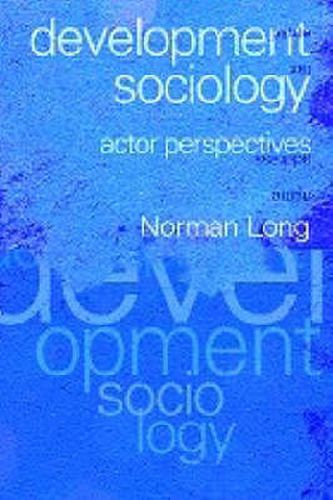Readings Newsletter
Become a Readings Member to make your shopping experience even easier.
Sign in or sign up for free!
You’re not far away from qualifying for FREE standard shipping within Australia
You’ve qualified for FREE standard shipping within Australia
The cart is loading…






In this exciting and challenging work, Norman Long brings together years of work and thought in development studies to provide a key text for guiding future development research and practice. Using case studies and empirical material from Africa and Latin America, Development Sociology focuses on the theoretical and methodological foundations of an actor-oriented and social constructionist form of analysis. This style of analysis is opposed to the traditional structuralist/institutional analysis which is often applied in development studies. With an accessible mix of general debate, critical literature reviews and original case study materials this work covers a variety of key development issues. Among many important topics discussed, the author looks at commoditisation, small-scale enterprise and social capital, knowledge interfaces, networks and power, globalisation and localisation as well as policy formulation and planned intervention processes. This book should be read for its desire to pursue a form of analysis that helps us to understand better (and more realistically) the kinds of development interventions and social transformations that have characterised the second half of the twentieth century and will no doubt continue to characterise future development studies.
$9.00 standard shipping within Australia
FREE standard shipping within Australia for orders over $100.00
Express & International shipping calculated at checkout
In this exciting and challenging work, Norman Long brings together years of work and thought in development studies to provide a key text for guiding future development research and practice. Using case studies and empirical material from Africa and Latin America, Development Sociology focuses on the theoretical and methodological foundations of an actor-oriented and social constructionist form of analysis. This style of analysis is opposed to the traditional structuralist/institutional analysis which is often applied in development studies. With an accessible mix of general debate, critical literature reviews and original case study materials this work covers a variety of key development issues. Among many important topics discussed, the author looks at commoditisation, small-scale enterprise and social capital, knowledge interfaces, networks and power, globalisation and localisation as well as policy formulation and planned intervention processes. This book should be read for its desire to pursue a form of analysis that helps us to understand better (and more realistically) the kinds of development interventions and social transformations that have characterised the second half of the twentieth century and will no doubt continue to characterise future development studies.